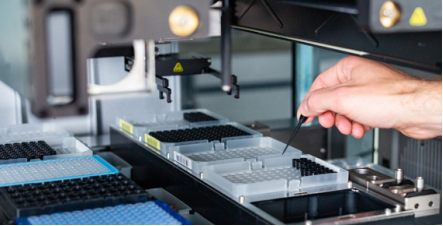Increased energy efficiency through the use of microchannel evaporators in industrial cooling systems

Energy efficiency remains a critical focus in industrial cooling systems, where operating costs and environmental impacts are major concerns. Microchannel evaporator have become a powerful solution to increase productivity while reducing energy consumption. These compact, highly efficient components use advanced heat transfer principles to optimize cooling processes. By integrating them into industrial systems, enterprises can achieve significant savings and achieve more stringent sustainability goals. This article discusses the mechanics of microchannel evaporators, their advantages and practical ways to maximize their potential in industrial applications, as well as additional technologies such as a microchannel condenser.
Microchannel evaporators differ from traditional designs by using small flat tubes with several internal openings, usually with a diameter of less than 1 mm. This design increases the surface area available for heat exchange, while minimizing the volume of refrigerant. The result is a system that transfers heat more efficiently and requires less energy to achieve the desired cooling effect. In industrial environments where refrigeration equipment or process cooling is widely used, such efficiency leads to lower energy costs and reduced wear on compressors and other components.
One of the key advantages of microchannel evaporators is their ability to work with modern refrigerants with low global warming potential (GWP). As regulations force the industry to abandon liquids with high GWP, such as R-410A, these evaporators are easily adaptable to alternatives such as R-32 or R-454B. Their design ensures lower refrigerant consumption, which meets environmental standards without compromising performance. For business leaders, such adaptability is a promising option as refrigerant policy evolves.
Improve system performance through design and maintenance
In order to fully exploit the energy-saving potential of microchannel evaporators, the design of the system plays a key role. Their combination with a properly selected microchannel capacitor can significantly increase efficiency. The condenser responsible for heat removal to the environment has a similar microchannel architecture, which ensures maximum efficiency of the entire cooling cycle. By optimizing both components of the system, pressure drops are reduced and heat dissipation is improved, which reduces the load on the compressor, the main energy consumer in cooling systems.
Another factor to consider is the correct size. Larger evaporators can lead to inefficient operation, while smaller devices overload the system, negating energy benefits. Engineers must accurately calculate the load on the cooling system, taking into account variables such as ambient temperature, humidity, and technological requirements. For example, in the food industry, where stable storage conditions at a temperature of 2 °C are required, a microchannel evaporator adapted to the specific heat load will be more efficient than a conventional ready-made device. Modeling tools or consultations with manufacturers can improve this process, ensuring that the evaporator will meet its intended purpose.
Maintenance also affects efficiency over time. Microchannel evaporators with small passages may be susceptible to contamination by dust, debris, or oil deposits. Regular cleaning using non-aggressive solutions and soft brushes prevents clogging that prevents air flow and heat transfer. In systems operating in harsh industrial environments, installing pre-filters on the air intake can extend the life of the evaporator and preserve its energy efficiency. Practical recommendations: Schedule inspections every six months, adjusting the frequency depending on the operating conditions.
The choice of material further enhances durability and performance. Most microchannel evaporators are made of aluminum, which has excellent thermal conductivity and corrosion resistance. However, in highly corrosive environments such as chemical plants, coatings or alternative alloys may be required. The initial investment in these improvements can prevent reduced efficiency and costly replacement in the future.
Practical application and effectiveness in real conditions
In practice, microchannel evaporators are excellent for various industrial cooling systems. Take data centers, for example, where precise temperature control is non-negotiable. These facilities often operate 24/7, making energy efficiency a top priority. According to the results of field research, a microchannel evaporator combined with a microchannel condenser reduces energy consumption by up to 20% compared to traditional tubular-ribbed structures. This not only reduces costs, but also reduces the load on backup power supply systems during downtime.
Another example is large-scale air conditioning systems in manufacturing plants. Here, microchannel technology effectively copes with variable loads, adapting to changing production schedules. By maintaining stable temperatures with lower energy consumption, these evaporators help companies complete production tasks without increasing utility costs. For optimal results, the integration of variable-speed fans and electronic expansion valves allows the system to be fine-tuned to meet real-time conditions.
The low weight of microchannel evaporators also simplifies upgrades. Replacing bulky coils with compact microchannel evaporators in older industrial systems allows for increased efficiency without the need for major repairs. This approach is economically beneficial for enterprises seeking to modernize without failures. Case in point: A textile factory recently equipped its chillers with microchannel components, which reduced energy consumption by 15% during the first year.
System performance monitoring is necessary to maximize these benefits. Sensors that monitor the pressure, temperature, and flow rate of the refrigerant can detect a malfunction in a timely manner. If, despite the clean evaporator, the energy consumption increases dramatically, this may indicate a malfunction of the condenser or compressor, requiring quick adjustment. Data-driven analytical information ensures lean operation of the system, providing long-term savings.
Thus, microchannel evaporators are a proven way to increase the energy efficiency of industrial cooling systems. Their compact design, compatibility with environmentally friendly refrigerants and high heat transfer rate make them the optimal choice for modern equipment. By focusing on proper design, regular maintenance, and strategic integration of components such as the microchannel capacitor, enterprises can gain significant operational and environmental benefits. These steps, based on real-world applications, make microchannel technology the cornerstone of efficient industrial cooling.





